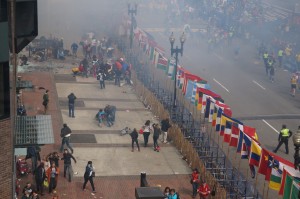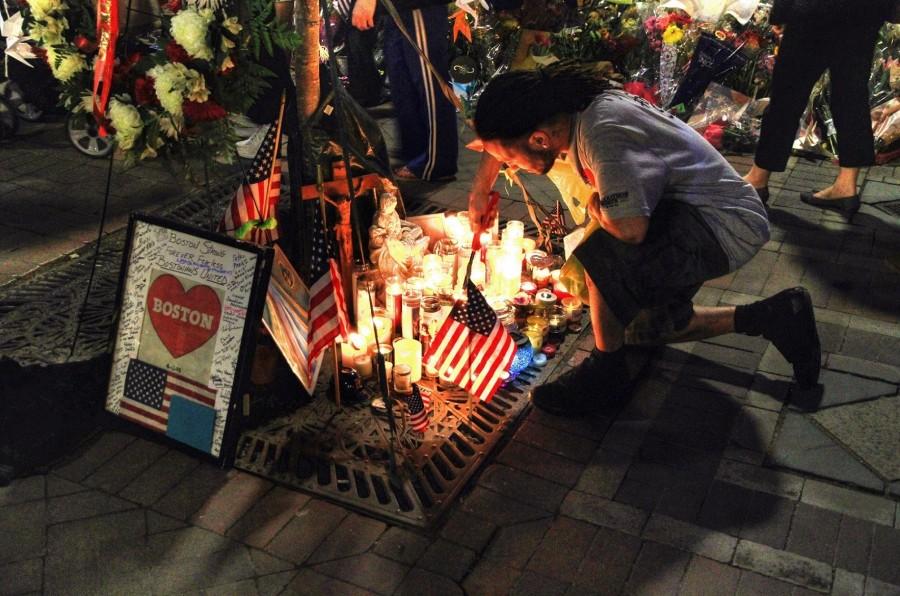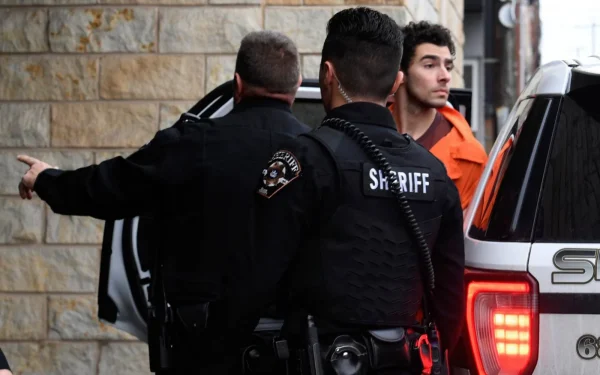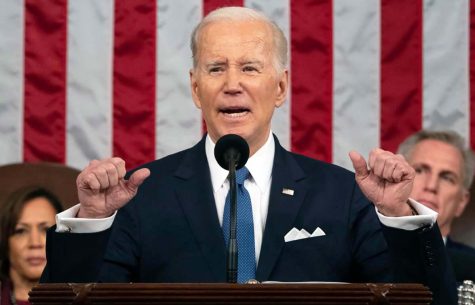The argument over how to punish a heinous crime
Google image/Creative Commons license
Mourners gathered at a makeshift memorial for victims of the Boston Marathon bombing in 2013.
The sentence has been passed down: Dzhokhar Tsarnaev will be put to death.
For weeks, a Boston jury discussed and pondered which punishment—death or life in prison without the possibility of parole—was more suitable for the young man who did not dispute his role in the Boston Marathon bombing in 2013. On May 15, the jury decided in favor of the ultimate punishment.
The question now: Is this the just punishment?
A sentence of this type is not possible in Massachusetts except under special circumstances. The death penalty is illegal in the commonwealth, but because Mr. Tsarnaev was charged on a federal level, it was an option—one prosecutors opted to pursue because of the nature of the crime.
In the days leading to the decision, both the people of Boston and students and teachers at AMSA expressed their opinions on which punishment they considered more suitable.
“Life in prison is good enough,” senior Paul Langton said.
A survey by The Boston Globe in September of 2013, just months after the brutal crime killed three and injured more than 250 others, showed that an overwhelming number of Boston residents supported life in prison (57 percent) over the death penalty (33 percent).
In a recent poll, conducted in March by WBUR, Boston’s NPR radio station, 62 percent of Boston voters said they would sentence Mr. Tsarnaev to prison for the rest of his life without the possibility of parole, while 27 percent said he should be put to death.
Mr. Tsarnaev’s attorney, Judy Clarke, tried to convince the jury with a variety of arguments and witnesses that her client’s life should be spared. While news reports generally stated that Mr. Tsarnaev showed no remorse for his actions, Sister Helen Prejean said that Mr. Tsarnaev had expressed sympathy, in talks with her, toward the victims.
According to a report in The New York Times, the nun met with him five times in the two months leading to the decision, at the defense team’s request.
“He said emphatically, ‘No one deserves to suffer like they did,’” Sister Prejean said.
Had Mr. Tsarnaev been sentenced to life in prison, he largely would have been confined to a cell 23 hours per day. Ms. Clarke argued this was more appropriate and also asked jurors to consider the influence that her client’s older brother, Tamerlan Tsarnaev, exerted upon him.

The aftermath of the Boston Marathon bombing, in which three were killed and more than 250 were injured.
It was an argument that most people agreed with.
In a letter printed in The Globe, Bill Richard, whose 8-year-old son, Martin, was killed in the blast, argued against the death penalty for Mr. Tsarnaev.
“We are in favor of and would support the Department of Justice in taking the death penalty off the table in exchange for the defendant spending the rest of his life in prison without any possibility of release and waiving all of his rights to appeal,” Mr. Richard wrote.
He added, “We understand all too well the heinousness and brutality of the crimes committed. We were there. We lived it. … We know that the government has its reasons for seeking the death penalty, but the continued pursuit of that punishment could bring years of appeals and prolong reliving the most painful day of our lives.”
Mr. Richard and his family simply wanted a chance to move on. Others agreed with that and brought additional factors to the table.
AMSA math teacher Jack Marshall said he supported life in prison because it was the cheaper option, and because “I would rather not have him be some sort of martyr [for future terrorists].”
The outcome has proved to be the ultimate paradox, as well as the ultimate punishment: death for a crime committed in a state without the death penalty.
This punishment has the potential to leave a legacy. Will it show the rest of the world how the United States deals with acts of terrorism? How will the message be received? Will we be viewed as barbaric? Or will it show that America does not go soft in its punishments?
Senior David Wu agreed that the death penalty was the suitable punishment because of the severity of the crime and junior Sarah Jackson said simply that Mr. Tsarnaev “deserves it.”
On the other hand, the death penalty seems hypocritical. At bottom, how is killing Mr. Tsarnaev as a punishment any different from him killing people at the Boston Marathon? Is killing someone, no matter the circumstance, murder? A sentence of life without parole, the argument goes, could have separated the United States from mad men and terrorists.
Is a long, lonely life in prison actually worse than death?
“I think life in prison would be more [miserable],” junior Lauren Gardner said.
Others have argued the raw numbers: the road to execution actually costs more, in the long run, than housing a convict for life.
All that aside, which is the “right” punishment? Which is most just? That argument likely will go on forever, leaving the simple, elegant words of Mr. Richard to put it all in perspective.
“It is clear that peace of mind was taken not just from us, but from all Americans,” he wrote. “We honor those who were lost and wish continued strength for all those who were injured. We believe that now is the time to turn the page, end the anguish, and look toward a better future—for us, for Boston, and for the country.”

If you asked Rebecca’s friends how they would describe her, they would probably say compassionate. She cares a lot about her friends, and always tries...








m • Mar 28, 2016 at 7:57 pm
This article is extremely biased and only shows one side of the argument. This really should have been written under opinion